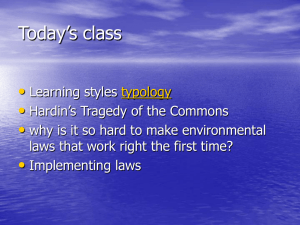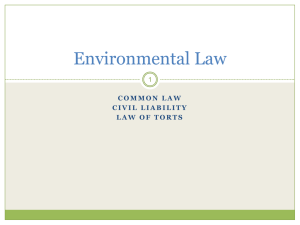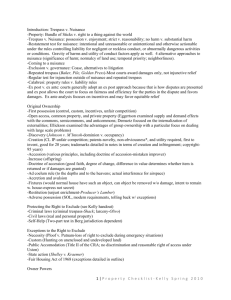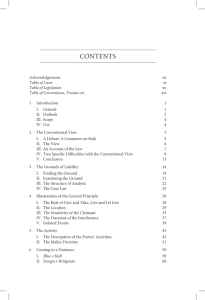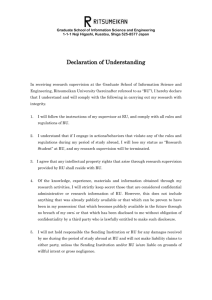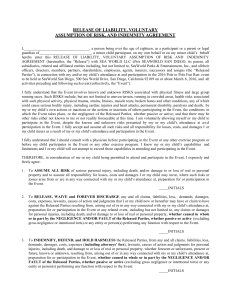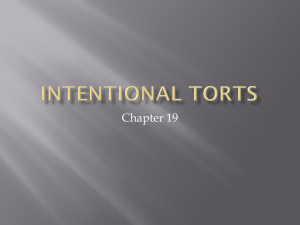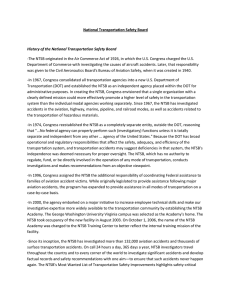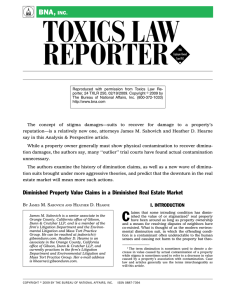Tick, tock, tick, tock: Plaintiffs' Perspective on Aging Infrastructure
advertisement
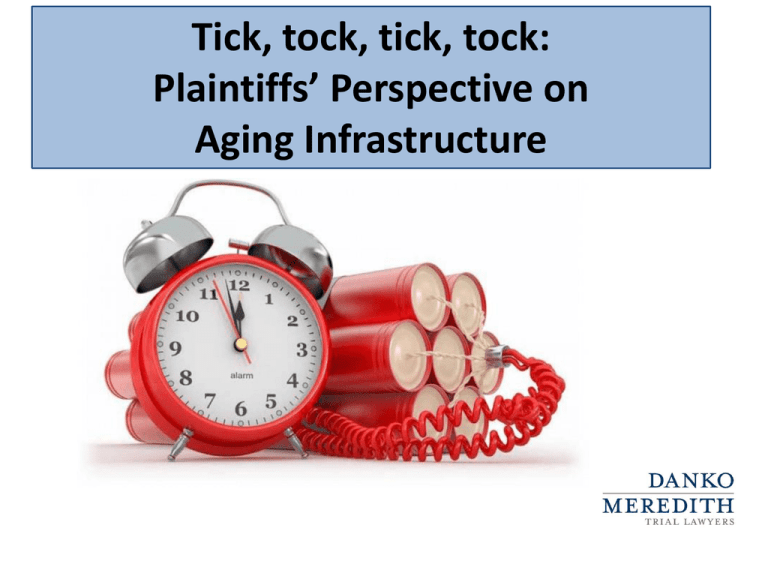
Tick, tock, tick, tock: Plaintiffs’ Perspective on Aging Infrastructure Bridges, Railways, and Pipelines Andrew Spear / AP Photo / via The Washington Post "I35 Bridge CAndrew Spear / AP Photo / via The Washington Postollapse 4crop" by Mike Wills - Flickr. What do these incidents have in common? A. Civil lawsuits B. Root cause: metal fatigue C. NTSB investigations D. All of the above NTSB controls the investigation NTSB Controls the Evidence • “Party” system • Destructive testing • Use of subpoena power • Interviews not recorded Discovery to the NTSB is Ineffective Using the NTSB reports Do I Have a Claim? Different Shapes and Sizes Money Damages Nuisance/Trespass Inverse Condemnation Negligence Money Damages Potential Claimants Damages List •Personal Injury •Emotional Distress •Property Damage •Diminution in Value Money Damages - Nuisance Odors Physical injury not required Negligence not required Fredericks v Fredericks (1951) 108 Cal.App.2d 242. Nuisance Annoyance, Discomfort Loss of use and enjoyment Reasonable fear of future danger Alternative living expenses Physical Injury Diminution in Value Nuisance “There is perhaps no more impenetrable jungle in the entire law than that which surrounds the word nuisance.” - William Prosser, The Law of Torts, 4th ed., page 571 Nuisance - Limitations? Public Nuisance Diminution in Value/Stigma Permanent vs. Continuing and abatable Threat of future injury Santa Fe Partnership v. Arco (1996) 46 Cal.App4th 967 Money Damages: Inverse Condemnation Diminution in Value (DIV) Costs Fees Interest Money Damages – Negligence Physical Injury -> Emotional distress, Fear No physical Injury -> Emotional distress? Closeness of connection Moral blame Burgess v. Superor Court (1992) 2 Cal.4th 1064 Money Damages: Inverse Condemnation Odors: Varjabedian v. City of Madera (1977) 20 Cal.3d 285 Negligence Fear of Disease – Medical Monitoring 965 Extent of exposure Relative toxicity Seriousness of disease Relative increase in risk Clinical value Potter v. Firestone (1993) 6 Cal.4th Negligence Business Interruption: “[L]oss of prospective profits, that otherwise might have been made from [a business’s]operation, are ordinarily recoverable for the reason that their occurrence and extent may be ascertained with reasonable certainty from the working experience of the business, from the past volume of business, and other provable data relevant to the probable future sales.” Lucky v. Turner (1966) 244 Cal.App.2d 872 Punitive Damages flickr: Scott L. / (CC BY-SA) Community Recovery Kristine Keala Meredith kmeredith@dankolaw.com
